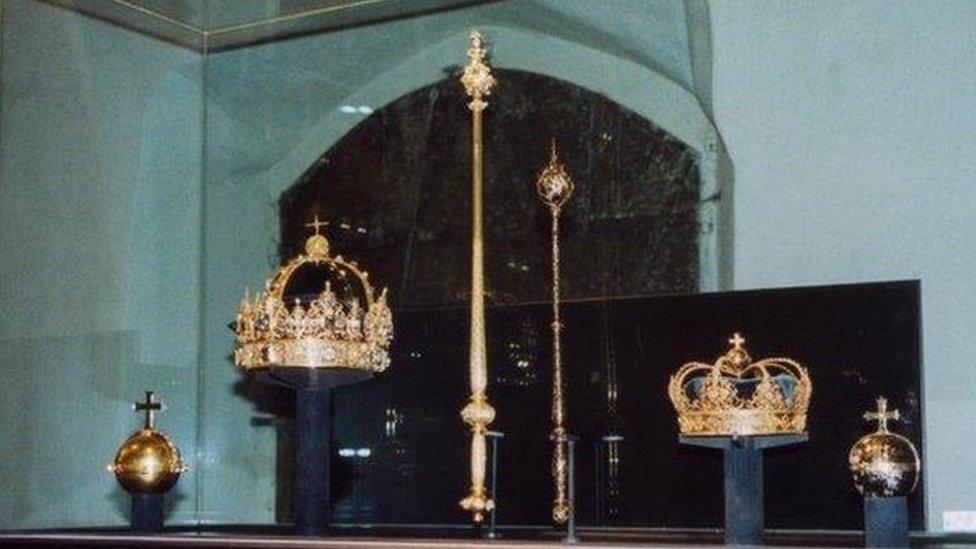Royal raid: The curious case of the Irish Crown Jewels
- Published
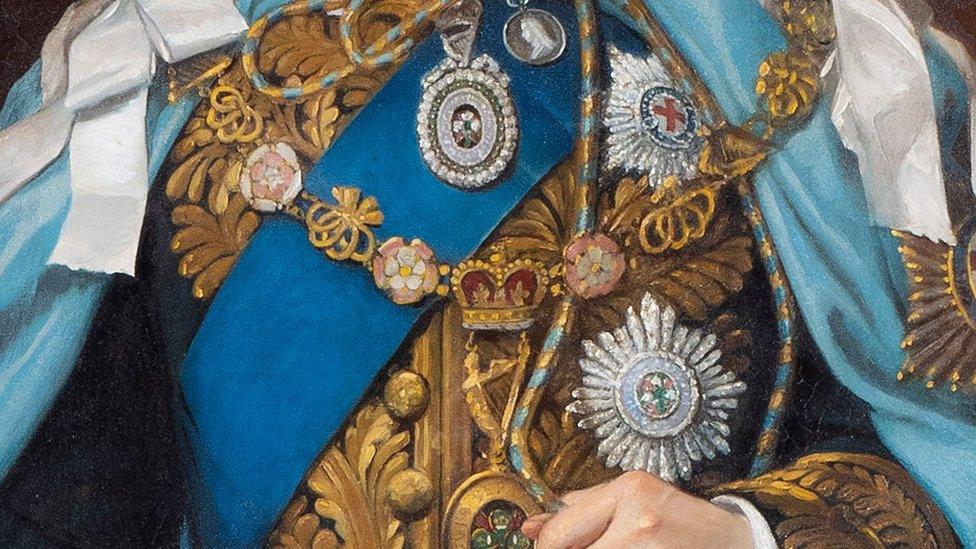
The crown jewels as modelled by Charles Vane-Temple-Stewart, 6th Marquess of Londonderry, when he was lord lieutenant of Ireland
The theft of the Irish Crown Jewels from Dublin Castle in 1907 was Ireland's most scandalous heist - and it remains unsolved to this day.
With an estimated value of €5m (£4.3m), their current whereabouts remain unknown.
King William IV presented the jewels for use by the lord lieutenant of Ireland in 1831.
Some 394 precious stones were taken from the English Crown Jewels to create the set.
The jewels of the Most Illustrious Order of St Patrick consisted of a star-and-badge regalia set with Brazilian diamonds, emeralds and rubies - originally sourced from William IV's mother, Queen Charlotte.
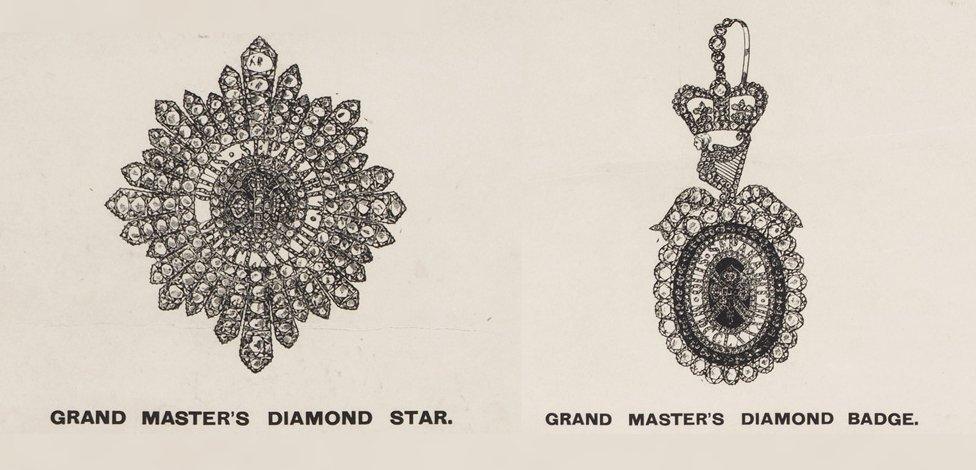
The ornate jewels are estimated to be worth millions today
While normally housed in a bank vault, a decision was made in 1903 to store them in a safe in the castle's Bedford Tower.
Unfortunately, the safe was too large to make it through the strongroom doorway and officials opted to have it placed in the castle library instead.
Duty then fell on the Ulster King of Arms, Sir Arthur Vicars, to look after the keys.
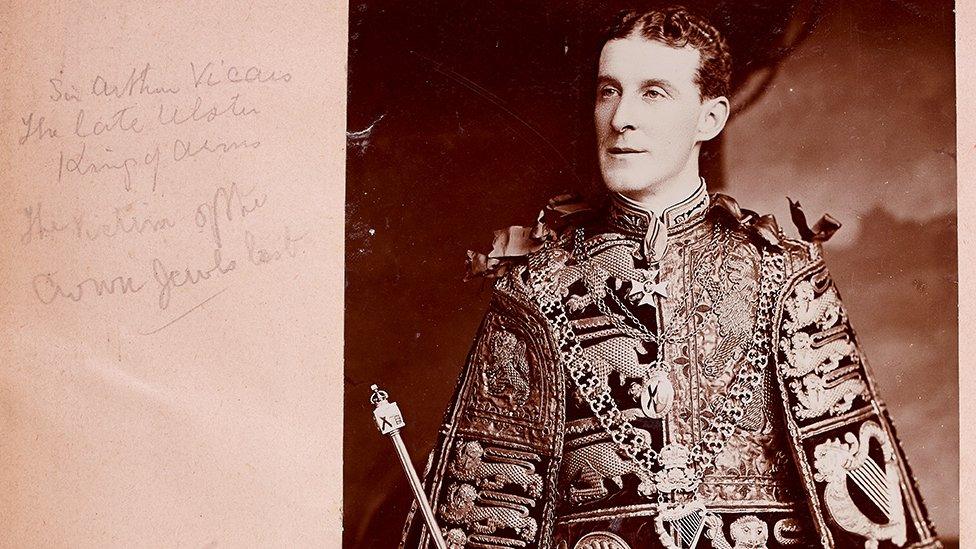
Sir Arthur Vicars, pictured in 1902, was responsible for more than one security breach
By all accounts, he wasn't the best at it - Sir Arthur enjoyed showing off the jewels and regularly misplaced his keys.
It didn't help that the library also doubled as his waiting room, with visitors constantly passing through.
On one occasion, when Sir Arthur was inebriated at a party, Lord Haddo allegedly took his keys, stole the jewels and returned them by post - all in the name of fun.
In the weeks prior to the theft, several security breaches had been reported and ignored, including misplaced keys and open doors.
At one stage Sir Arthur himself was locked out of Bedford Tower.
On the afternoon of Saturday 6 July, an office messenger entered the safe to lodge a recently repaired golden collar, it was then that officials realised the jewels were not to be found.
Some of Sir Arthur's personal treasures were also missing, along with the collars of five knight members of the Order - their combined value is estimated to be £300,000 today.
Detectives were stumped as there was no sign of a forced entry, suggesting that the mystery culprit had their own key.
Curiously, a ribbon and clasp had been left behind, a task that involved undoing two small screws which SirArthur estimated would have taken nearly 10 minutes. Whoever had stolen these jewels was in no great rush.
Angry king
By Monday, the disappearance had made international headline news, with the Dublin Metropolitan Police offering a staggering £1,000 reward.
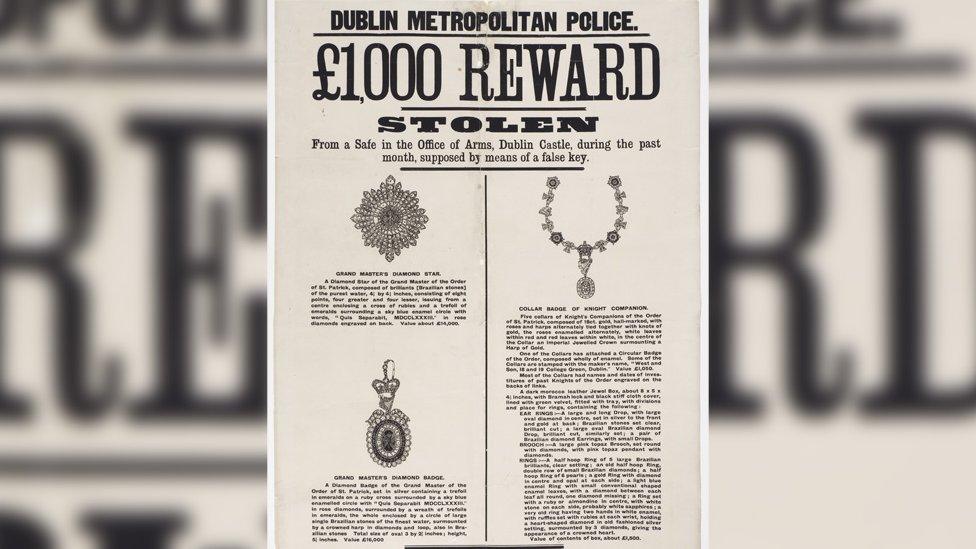
Reward posters were distributed in 1907 for the return of the Irish Crown Jewels
King Edward VII was, understandably, less than impressed.
He had been expected to don the jewels during an event at the Irish International Exhibition and subsequently had to cancel the ceremony.
His visit still went ahead although it was far from friendly - a member of the royal household staff later recalled that he had "never seen King Edward so angry".
"His rage was something terrible and fearful... I am sure the officials he lectured never forgot his words," he added.
The king's personal feelings aside, the heist was something of a huge political embarrassment as the castle was the British administration's base in Ireland and the lost jewels were seen as symbolic of their reign.
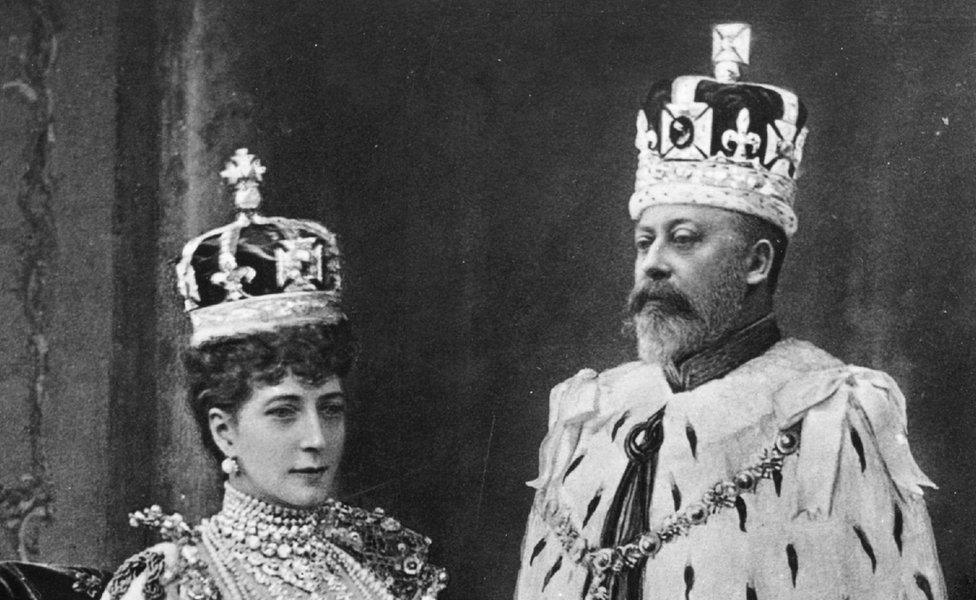
King Edward VII and Queen Alexandra visited Dublin four days after the heist
With little evidence, Dublin police were getting nowhere and Scotland Yard soon stepped in.
Ch Insp John Kane arrived on 12 July to assist. He believed the theft to be an inside job and his report, which was never released, is said to have directly named the culprit.
Some have speculated that this information was then suppressed by the Royal Irish Constabulary.
Psychics and graveyards
The ongoing investigation took on many twists and turns.
Psychics offered their services with one claiming that the jewels were hidden in a graveyard - however subsequent digs proved fruitless.
Sherlock Holmes author Arthur Conan Doyle, a distant cousin of Sir Arthur, even offered his assistance with the investigation.
It is believed the event went on to inspire his book The Adventure of the Bruce-Partington Plans.
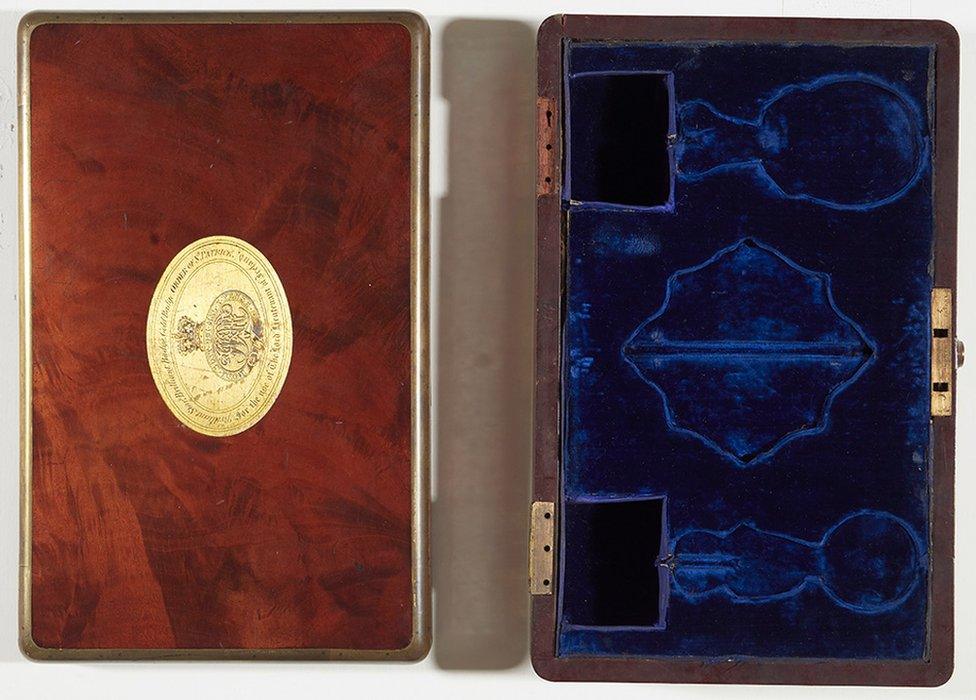
Box of the Insignia of the Grand Master of the Order of St Patrick
Then there was the theory that the jewels were stolen by political activists and that they may have smuggled them to the USA.
In the House of Commons in August 1907, Pat O'Brien MP blamed "loyal and patriotic Unionist criminals" for the crime.
Others thought they were stolen as part an elaborate plot to embarrass the liberal government, with the jewels later secretly returned to the Royal Family.
One of the more scandalous accusations involved the London Mail: In 1912, the newspaper alleged Vicars allowed his mistress to obtain a copy of the safe keys and that she had subsequently fled to Paris with the stolen jewels.
Sir Arthur later went on to successfully sue for libel and was awarded £5,000 in damages.
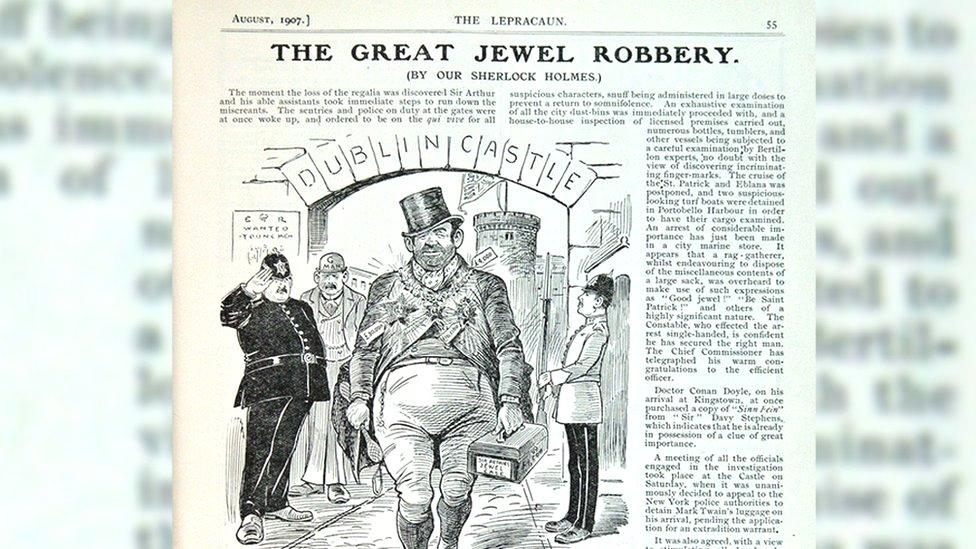
A monthly newspaper, The Lepracaun, referenced the fact Arthur Conan Doyle, a distant cousin of Sir Arthur Vicars, had offered his assistance
Sir Arthur had his own idea of who the culprit was - Francis Shackleton, brother of Antarctic explorer Ernest, who also possessed a key to the tower.
Shackleton was well known for living beyond his means, regularly borrowing from loan sharks.
Maintaining his innocence throughout, Sir Arthur refused to step down as the investigation continued.
He was eventually dismissed by the King and became something of a recluse in his later years before being murdered by the IRA.
His last will once again accused "the real culprit" Shackleton and criticised the Irish government and King Edward for making him a scapegoat.
Researchers agree that a likely tale could be that Shackleton worked in complicity with his lover, Capt Richard Gorges, after they plied Sir Arthur with enough whiskey to make him pass out.
Others speculate Shackleton was being blackmailed - the real culprit threatening to disclose his homosexuality - which was outlawed at the time.
While never convicted for the theft, Shackleton was eventually imprisoned in 1914 for handling a stolen cheque.
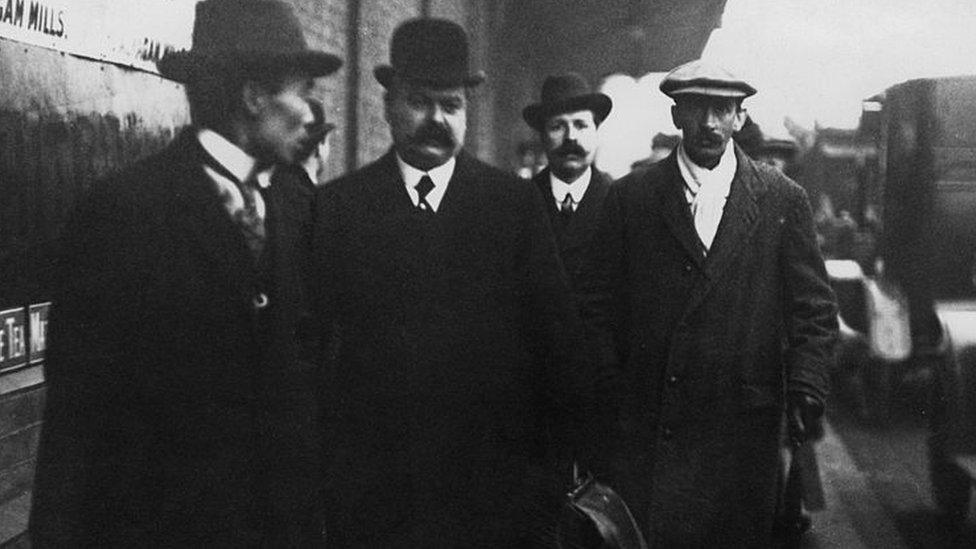
Sir Arthur Vicars maintained that Francis Shackleton (far right) was the culprit
To this day, the location of the crown jewels remains a mystery, with few even remembering the tale.
Dublin Castle's William Derham said: "As the country lurched into war, it would have been convenient to forget about things.
"It was a huge scandal and embarrassment at the time."
In recent years, an unearthed Executive Council of the Irish Free State memo from 1927 stated that Ireland's leader, WT Cosgrove, understood "that the Castle jewels are for sale and that they could be got for £2,000 or £3,000".
"A part of me hopes that they do exist," said Mr Derham.
"But thinking with my head, they were probably broken up.
"That's how thieves worked then and how they work now."
Images courtesy of the Office of Public Works and the National Library of Ireland
Related topics
- Published19 September 2022
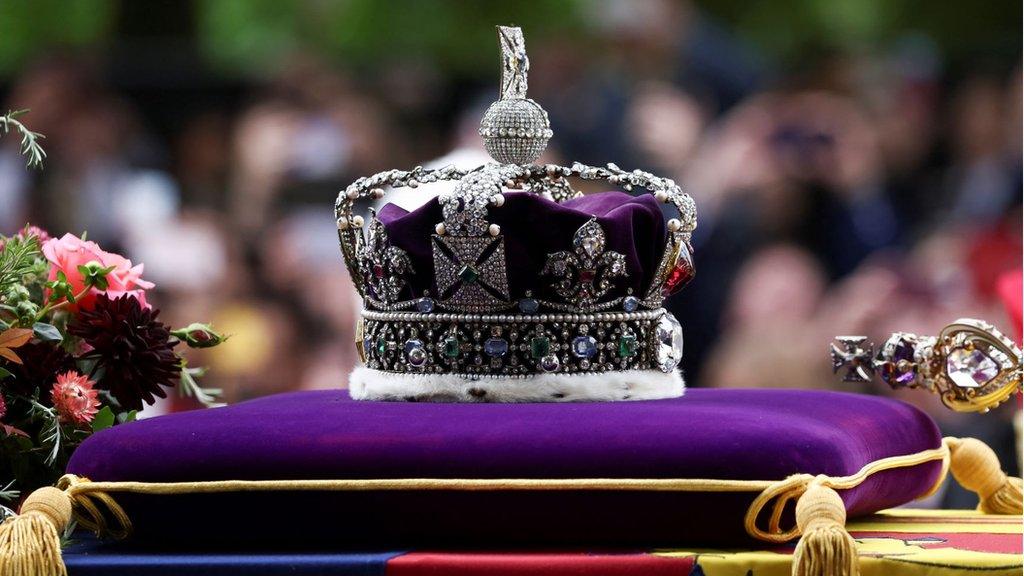
- Published12 January 2018
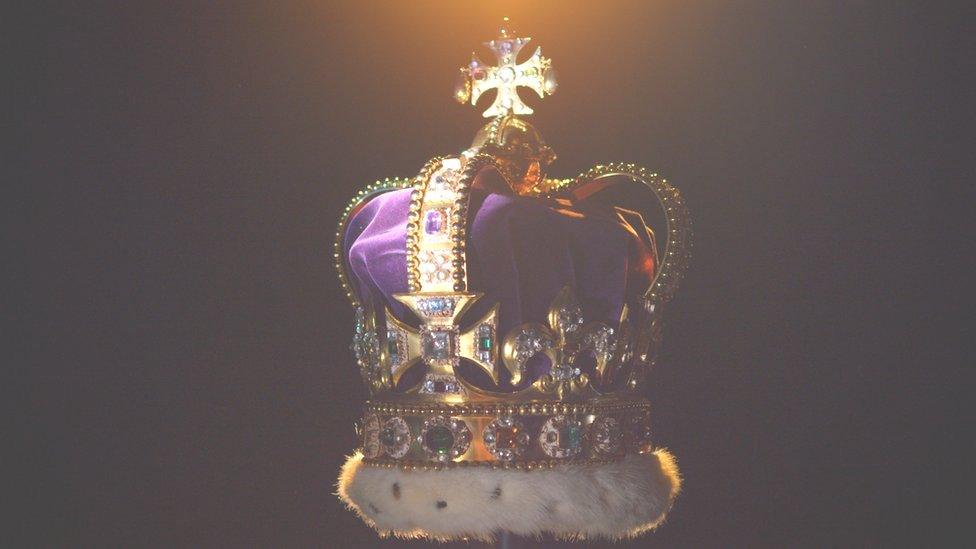
- Published12 January 2018
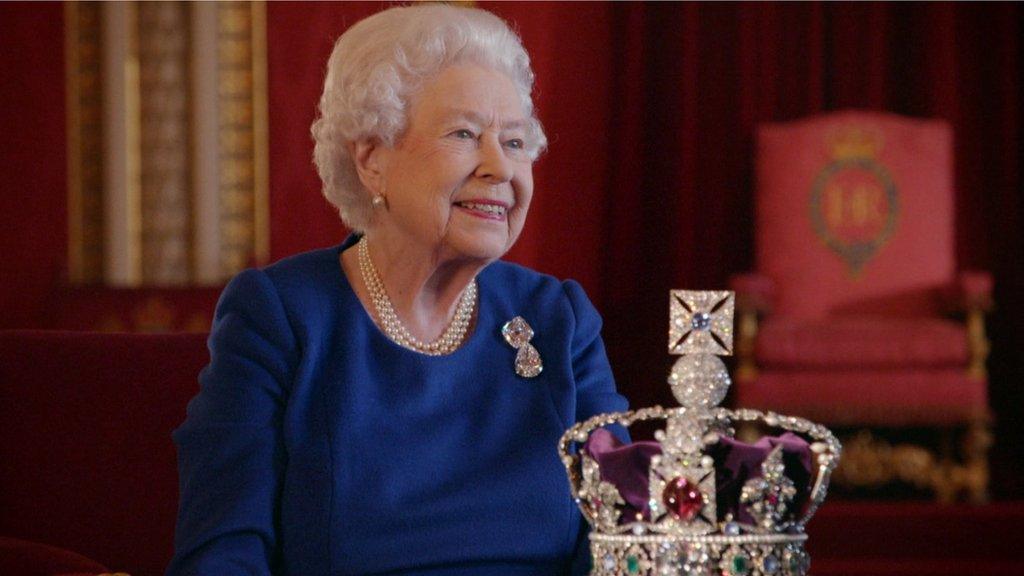
- Published1 August 2018
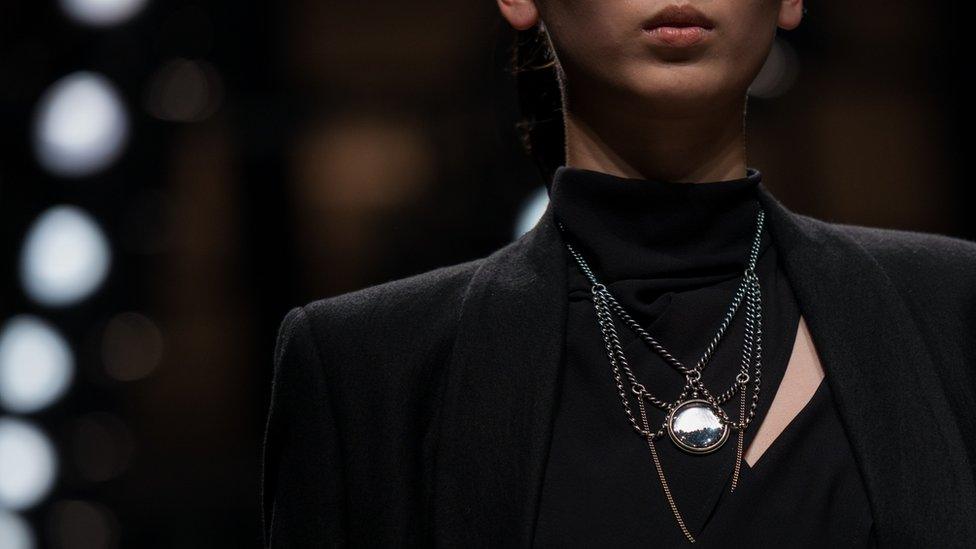
- Published1 August 2018
